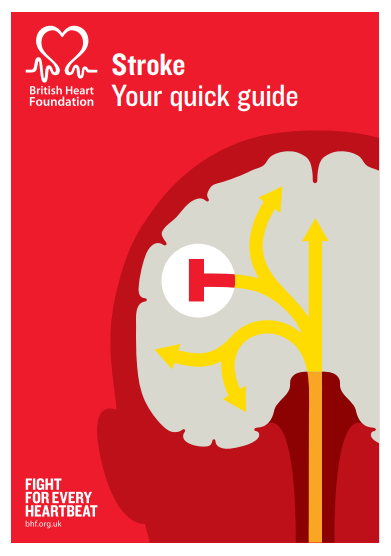Living with Atrial Fibrillation
- 0About this program
- 1Welcome to Living with Atrial Fibrillation
- 2What is Atrial Fibrillation or `AF`?
- 3Causes, symptoms and tests
- 4Understanding the risks
- 5Treatments for Atrial fibrillation (AF)
- 6Supporting you through treatments
- 7Living well with Atrial Fibrillation
- 8Looking after yourself with AF
- 9Changes in your condition
- 10Continuing support
- 0About this program
- 1Welcome to Living with Atrial Fibrillation
- 2What is Atrial Fibrillation or `AF`?
- 3Causes, symptoms and tests
- 4Understanding the risks
- 5Treatments for Atrial fibrillation (AF)
- 6Supporting you through treatments
- 7Living well with Atrial Fibrillation
- 8Looking after yourself with AF
- 9Changes in your condition
- 10Continuing support
Content on HealthUnlocked does not replace the relationship between you and doctors or other healthcare professionals nor the advice you receive from them.
Never delay seeking advice or dialling emergency services because of something that you have read on HealthUnlocked.
Understanding the risks

We’re helping you understand the risks that come with Atrial Fibrillation (AF), and the things you can do to bring those risks down. While you can’t control whether or not you have AF, you can make choices that help protect you from a stroke, such as taking your medications as prescribed and making healthy choices.
AF and the risk of stroke
AF can increase the risk of a blood clot forming inside the heart. If the clot travels to the brain, it can cause a stroke. AF increases your risk of stroke by 4 to 5 times.
When deciding how to treat and manage your AF, your doctor will look at your overall risk of having a stroke. They will take your medical history, lifestyle, age and any existing conditions you have into account. They put this into something called the CHA2DS2-VASc points system – this estimates your overall risk.
If your score is 1 or more, you’ll probably be given anticoagulant medication to reduce your risk of having a stroke.
Anticoagulants ‘thin’ the blood, making it much less likely that clots will form. This can also mean that your risk of having a bleed is higher. For people who already carry a risk of bleeding, anticoagulants might not be suitable, as the risk of having a stroke caused by a bleed in the brain is higher. Your doctor will explain if this is the case for you, and which treatments are more suitable.
Why am I at risk of a stroke?
Conditions related to AF
It’s possible that you have more than one condition that affects your heart and circulatory health. If this is the case, it’s important to understand how your other conditions relate to your AF so you can manage your condition well.
High blood pressure – this increases your risk of having a heart attack or stroke, so combined with AF, your stroke risk can be higher. This can be managed by taking medications as well as leading a healthy lifestyle.
Coronary heart disease – this is where the arteries in your heart become narrowed through build up of fatty material. In many cases, this fatty material will also be present in the arteries that supply your brain with blood, so your stroke risk is also increased and your doctor may suggest different treatments for your AF.
Heart failure – this is a long-term condition that means your heart isn’t pumping as well as it should. This may make your AF symptoms more noticeable. People with heart failure are more likely to develop AF. AF can also lead to heart failure when it’s poorly controlled. Discuss ways to manage your symptoms and prevent your condition getting worse with your doctor.
Vascular dementia – this is a type of dementia that happens when there’s a problem with the blood supply to the brain. Vascular dementia is caused by strokes and mini strokes (or TIAs), so it’s important to reduce your risk of having a stroke.
How to reduce your risk
Thinking about the impact AF could have on your long-term health may feel overwhelming. The good news is there are things you can start doing right away to improve your health.
Take your recommended medication. Your healthcare professional will prescribe you medication that will reduce your risk of a stroke. Taking this medication as prescribed is one of the most important things you can do to protect your health.
Lead a heart-healthy lifestyle. Eating well, being active and avoiding heavy drinking and smoking will all make a difference in reducing your risk of heart and circulatory diseases.
Quitting smoking reduces your risk of heart and circulatory diseases.
Stroke – your quick guide
Our leaflet will take you through symptoms, causes and different types of strokes. It’s free and easy to download or order from our website.
Download our stroke quick guide

Next: Exploring your treatment options
What we will cover next:
- What are anticoagulants and why you are likely to be prescribed them.
- An introduction to ablations and cardioversions.
- Top tips for discussing your treatments with your healthcare team.
Content on HealthUnlocked does not replace the relationship between you and doctors or other healthcare professionals nor the advice you receive from them.
Never delay seeking advice or dialling emergency services because of something that you have read on HealthUnlocked.